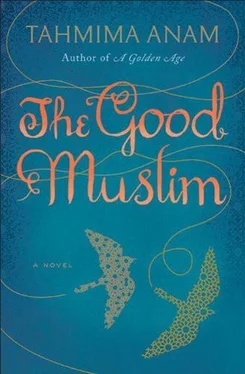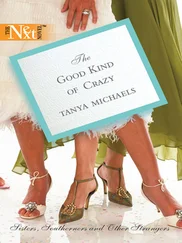‘I could show you a few things too, you know.’
‘Like what?’
‘Look over there. You want to know the most painful thing about living in that slum? If you’re a woman?’
‘What?’
‘Drinking water.’
‘Why, because the water is dirty?’
‘That too, but it’s not just that. See, if you are a woman and you live in that slum, you wake up in the middle of the night while it’s still dark, and you make your way to the edge of the shanties, and you lift up your sari and squat over the open drain. And then you tiptoe back into bed with your husband, and for the rest of the day, you wait, you wait and wait until it gets dark, your stomach feels like it’s full of needles, your insides are burning, but you can’t do anything, no, you can’t, you have to wait until it gets dark and everyone else has gone to sleep so you can have your one solitary piss of the day.’
His head was bowed, and she saw his hand moving towards her hand and she moved her hand away, because she didn’t want him to think that his gesture was a way of resolving this, the cruelty of the country, the collaborators that ran free and never went to jail for murder and rape — because there were things that could not be erased with the squeeze of a hand, memories and sins and conditions of humanity.
She turned to him. ‘I’m not made to sit in meetings.’
‘You shouldn’t. You argue too much.’
She laughed. ‘That’s true.’ She leaned against him. ‘Find me a rickshaw.’
‘Let me take you — make use of my skills as a taxi-driver.’
*
She had just taught Zaid the numbers in English, one through ten, and he was repeating them aloud, his voice high and proud, when the phone rang. Maya looked at her watch — four o’clock, must be for the girl upstairs, though she was nowhere in sight. She picked up. ‘Hello?’
The line was sandy. ‘Hello?’ It was a woman. ‘Maya?’
Nazia. ‘Nazia?’ Her heart flew to her throat.
‘Maya Apa,’ she said, addressing her formally. ‘Are you well?’
‘Yes, I am well.’
‘And your mother?’
‘She is well also. And how are your children?’
Maya heard the sound of Nazia clearing her throat. ‘I got your letter — your letters. Both of them.’
She tried to remember what she had written. The long, meandering explanations, the apologies. ‘There was much to say.’
Nazia blew into the receiver. ‘I’m sorry you had to go, like that.’
‘It was my fault. I should never have let you swim in the pond.’
A pause. ‘I’m going home today, doctor says.’
All this time she had been at the hospital. ‘The children will be so glad to see you.’
‘I have to go now.’
‘All right,’ Maya said. For some reason she wanted to add, God Bless You, but before she could say anything the line went dead. She pressed several times on the receiver, but there was only the sandy sound, not even a dial tone.
*
‘Zaid, what do you know about your grandfather?’
‘He died.’
‘That’s right. Did you know he had your chin?’
She was making it up. ‘Really?’
She placed her thumb in the dent of his chin. ‘Yes, it was yours exactly.’
They took a rickshaw to the graveyard. He was wearing his sandals today, and a clean kurta that smelled of industrial soap. He could almost sound out the words on the gravestone: MUHAMMAD IQBAL HAQUE.
‘Did you know’, Maya said, ‘I was the same age as you when my father died?’
‘Did you cry?’
‘No, I didn’t cry. I didn’t know how sad I should be.’
‘Me too.’
She knew. She had watched him talking about his mother, putting all his optimism in his recollections of her — the Ludo board, the promises about going to school. ‘She was very beautiful, your ammoo,’ Maya said. ‘She had grey eyes, like yours.’
He circled the grave, tapping his hand on the gravestone as he passed.
‘Do you want to say something to your mother, Zaid?’
‘This isn’t her.’
‘Yes, but she can hear you. What do you want to say to her?’
He stopped, crouched. ‘Ammoo,’ he said, ‘I would like a cycle.’ Then he cupped his hands, as he had been taught, and recited the Kalma.
That night, in her sleep, she stretched her feet to the edge of the bed and found herself in contact with something warm. Sitting upright, she reached with her fingers. A sleeping form, breathing in and out. She must be dreaming. She switched on the light. The boy, his hand fanned over his face, did not stir.
She draped the blanket over him and he shifted, pulling it up over his head. In the garden, the trees were licked by moonlight.
Later, as the room coloured, she pulled him into the mosquito net and curled around him, feeling his shoulders loosening, his feet drifting towards her.
*
On the last day of June, when the searing heat of spring was about to move aside for the monsoon, Rehana persuaded Maya out of the house and stood her in front of the newest, grandest building in the city.
‘I hate it,’ she said, shielding her eyes. ‘It’s hideous.’
‘Come on, beta, don’t be so harsh.’
‘Hideous. She swivelled her head around, trying to take in the whole building, making sure she didn’t miss any of it. ‘Is that water?’
‘Yes, it’s built on a pool of water, like a shapla flower floating in the river.’
‘Why is it so big?’
‘Doesn’t matter, it’s our parliament now. That very nice American chap built it.’
‘Well, I don’t like it,’ she said, moving forward nonetheless, climbing the wide steps that led up to the building. ‘Where’s the entrance?’
‘I don’t know. We’re not supposed to go inside; just admire it from here.’
They turned their backs to the building and took in the view of the grounds. The lawn stretched out on either side, reaching Sher-e Bangla Nagar to the east, Mirpur Road to the west. It was impressive, there was no denying that. Already the trees ringing the compound looked ancient. Dotted around the gardens, she saw couples holding hands, trying to catch the shade of a tree. On a patch of grass near the main road, a phuchka-vendor had set up his cart. He waved, beckoning. ‘Hungry, Ma?’ Maya said.
They settled into the crude wooden chairs and ordered two plates. The sun was starting its rapid descent, sending horizontal ribbons of light across the wide carpet of green that led up to the building. Suddenly she wanted to be somewhere else; her eye ached for the groves of Rajshahi, for her little brick house. She wondered if Nazia would call her again, imagined the trouble it would be for her to pay the postman, get him to dial the number. ‘That little village was like home,’ she said suddenly, her eye lingering on the building, resisting its grey curves, the way it floated, solid yet delicate, on its American-made lake.
‘It will be hard to leave behind,’ her mother said. I can still go back, Maya thought. I can pack up again and march out the door and become a country doctor again.
The phuchkas arrived, a dozen shells, each filled with its chickpea and potato mixture. Maya poured in the tamarind water and popped one into her mouth. Immediately her eyes began to water. ‘Mmm,’ she said, smiling.
‘Ay,’ Rehana said, ‘he’s put too much chilli.’ She waved at the phuchka-man.
‘No, Ammoo, leave it, they’re perfect,’ Maya said, wiping her streaming eyes. ‘Seriously. Perfect.’ Her mother passed her a handkerchief. ‘I’d forgotten how yummy they were.’ A steady procession of cars drove past the wide avenue in front of the parliament compound. In between bites of phuchka, Maya heard car horns, and the tinkle of rickshaw-bells as they turned corners or changed lanes, and, every few minutes, the Dhanmondi — Gazipur bus, tilted to one side as the passengers hung, Tarzan-like, to the railings.
Читать дальше












